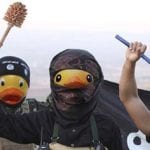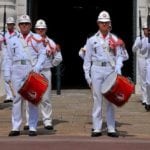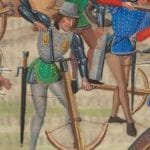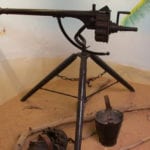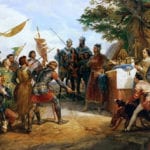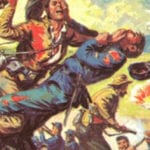 Humans
Humans  Humans
Humans  Movies and TV
Movies and TV The 10 Most Heartwarming Moments in Pixar Films
 Travel
Travel Top 10 Religious Architectural Marvels
 Creepy
Creepy 10 Haunted Places in Alabama
 History
History Top 10 Tragic Facts about England’s 9 Days Queen
 Food
Food 10 Weird Foods Inspired by Your Favorite Movies
 Religion
Religion 10 Mind-Blowing Claims and Messages Hidden in the Bible Code
 Facts
Facts 10 Things You Never Knew about the History of Gambling
 Weird Stuff
Weird Stuff 10 Cool and Creepy Facts about Collecting Tears
 Humans
Humans The Ten Most Lethal Gunslingers of the Old West
 Humans
Humans Ten Historic Men Who Deserve Way More Credit Than They Got
 Movies and TV
Movies and TV The 10 Most Heartwarming Moments in Pixar Films
 Travel
Travel Top 10 Religious Architectural Marvels
Who's Behind Listverse?

Jamie Frater
Head Editor
Jamie founded Listverse due to an insatiable desire to share fascinating, obscure, and bizarre facts. He has been a guest speaker on numerous national radio and television stations and is a five time published author.
More About Us Creepy
Creepy 10 Haunted Places in Alabama
 History
History Top 10 Tragic Facts about England’s 9 Days Queen
 Food
Food 10 Weird Foods Inspired by Your Favorite Movies
 Religion
Religion 10 Mind-Blowing Claims and Messages Hidden in the Bible Code
 Facts
Facts 10 Things You Never Knew about the History of Gambling
 Weird Stuff
Weird Stuff 10 Cool and Creepy Facts about Collecting Tears
 Humans
Humans The Ten Most Lethal Gunslingers of the Old West
10 Amazing Military Achievements By Underdog Nations
When we think of the best armies in the world, some countries just never come to mind. Yet it’s these seemingly trivial countries who often kick the most amount of butt during times of war.
10Greece Held Back The Italian Invasion
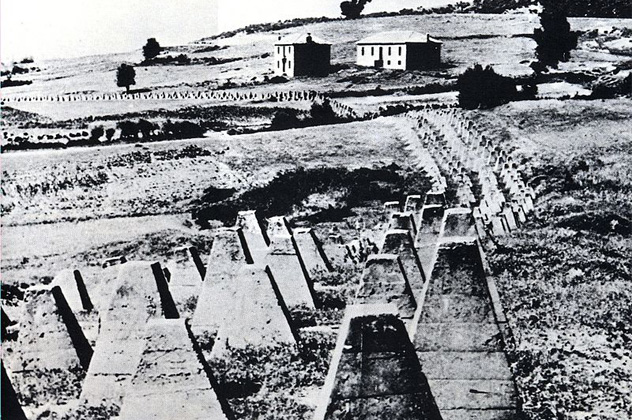
Seeing how easy Hitler was making World War II look at the start of the war and aching to get in on the action, Italy finally sent an ultimatum to Greece demanding some of their territories. Mussolini probably expected Greece to simply bend over because, honestly, what else were they going to do? Too bad for him, though, the Greek counter-offensive and subsequent victories against Italy turned out to be the first Allied victories over any Axis forces in the war. Metaxas, the Greek dictator at the time, is even believed to have replied to the ultimatum with the awesome phrase “Alors, c’est la guerre,” French for “So it’s war.”
Earlier in the war, Greece had been friendly with Hitler because of the trade, but the Italian ultimatum and subsequent threat of war united the country against the common enemy. The invasion came on October 28, 1940, and the Greeks successfully repelled the Italians and forced them to retreat into Albania in about two weeks’ time. The Italians were then put under siege for five months while the Greeks secured a lot of extra territory on the way. The situation got so bad for Italy that they had to call Hitler for help.
Greece ended up falling, but the air of invincibility around the Axis forces had already been broken. Hitler had to send troops to Greece that he wouldn’t have had to if Italy had accurately measured their strength against the Greeks, which delayed his advance into Russia and boosted morale among the enemy forces.
9The Albanians Fought Off The Superior Ottoman Army
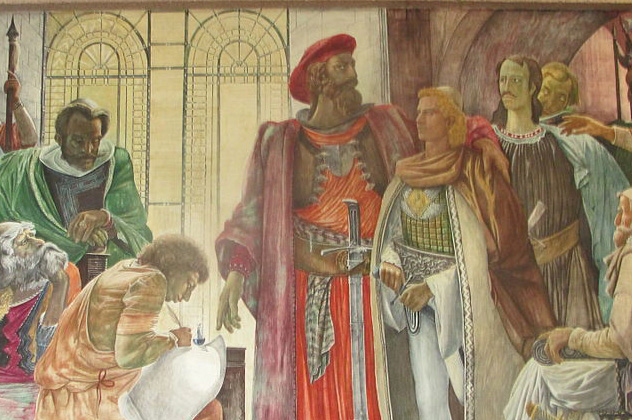
In the 15th century, the Ottomans were truly a power to be feared. With a massive, battle-hardened force and experienced leaders, they were rampaging through every country they could get their hands on. George Kastrioti, aka Skanderbeg, was then an Albanian fighting for the Sultan, but occupation of his own country made him switch sides and move to Albania to fight for his country. As soon as the Ottomans found out about this, they sent an army of 100,000 men to take the citadel of Kruja where Skanderbeg was holed up. He had already overthrown the Turkish commander of the city and established Albanian rule, and the Ottoman backlash was soon to come.
Skanderbeg didn’t have much of an army to begin with, but he knew how to train peasants to fight thanks to his experience in the Ottoman military. At the siege of Kruja, all accounts confirm that the Albanians were outnumbered at least five to one, with weapons that were all but matchsticks compared to what the Ottomans had. But even then, the Ottomans besieged the town for five months and still couldn’t take it. They suffered losses of more than 20,000, which was much more than the strength of the entire Albanian army. The Ottomans had to finally give up and retreat, largely due to the diminishing troop morale and the upcoming winter.
In the following years, the Albanians scored multiple victories over the Ottomans under Skanderbeg, achieving military feats that surprised people across Europe. They couldn’t sustain it, however, because no European power was willing to aid tiny Albania, and they couldn’t defeat the Ottomans on their own. Kruja fell in 1478 to the Ottomans, about 10 years after Skanderbeg died and 28 years after the Siege, but his contribution helped cement Albania’s reputation as a potent resistance force against one of the best armies in the world at the time.
8Indochina Showed The French What Real Warfare Is
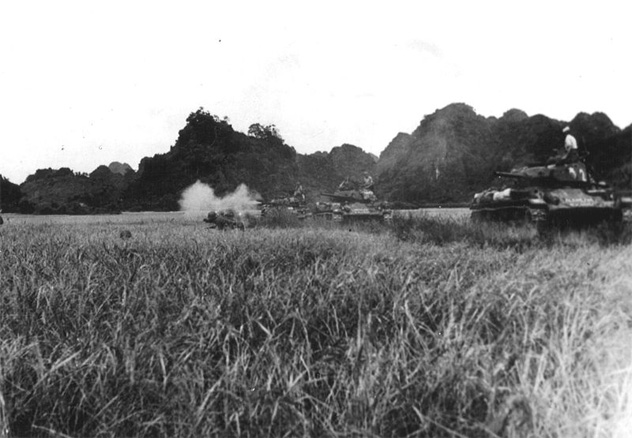
The disaster of the Vietnam War has often been credited to Soviet and Chinese assistance, but Vietnamese chutzpah is almost never mentioned. The whole thing started with French occupation of the country in 1946 and the setting up of a puppet government—well before any of the outside actors joined in. Much of the country rebelled, and the Viet Minh forces that subsequently started a war against the French were less “communist” and more “just leave our country alone.” The Vietnamese side wasn’t much of a match for the advanced French artillery and air force, though, and their soldiers were severely short on military training and conventional organizational abilities. But they had capable leaders—Vo Nguyen Giap and Ho Chi Minh—who understood the need for guerrilla tactics.
Due to these tactics, the French gradually started losing ground to the Vietnamese, and in 1953, they garrisoned in the valley of Dien Bien Phu and waited for the decisive battle. The Viet Minh under Ho Chi Minh besieged it in March, and even though the French were technologically superior in every way and confident of victory, the mobile Vietnamese forces utterly defeated them on the field.
The Vietnamese forces carried heavy artillery weaponry up the hills surrounding Dien Bien Phu and put the French camp under siege for about eight weeks. The French had originally planned to use air power for supplies, and while that worked pretty well, the speed and mobility of the Vietnamese forces soon overpowered the French garrison. The defeat marked an abrupt end to French colonization of Indochina, and Vietnam took a place in history as one of the few countries to win an independence battle against a European colonial power.
7The Turks Couldn’t Defeat A Small Hungarian Castle
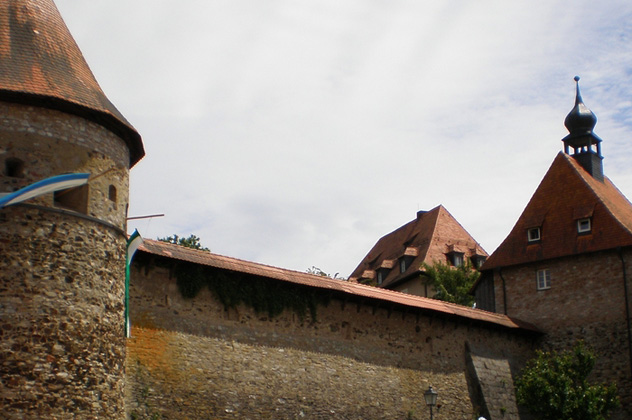
The Ottomans didn’t always learn from their mistakes. In 1552, they decided to invade the Hungarian town of Eger. Again, their army was among the best at the time with a force of about 80,000. In comparison, the only thing close to an army that Eger had was the walls of the castle. There were some soldiers but, all in all, the city only managed to scrape together a ragtag group of 2,000 fighters—mostly civilians. The Turkish army probably had that many men just to carry their supplies. Still, what the Turkish didn’t have was brass Hungarian balls, which ended up making all the difference.
The Turkish artillery was so overpowering that most of the castle walls were soon reduced to dust, but subsequent attempts to enter the castle were repelled by the defenders for about a month. High on morale and under able leadership, the Hungarians devised new ways to stop the Turkish juggernaut, even inventing whole new weapons to suit the need of the hour. Most of it worked, too, and by the end of it, the Turkish had lost about four times the number of men the Hungarians had in total.
Eventually, they decided that the castle was more trouble than it was worth and just sort of gave up. The defeat didn’t stop the Ottomans, though, and Hungary underwent sporadic Ottoman rule for most of its subsequent history. Still, the Ottoman defeat at Eger is celebrated in Hungary as a national symbol of resistance against invaders to this day.
6The Polish Contribution To The Allies In World War II
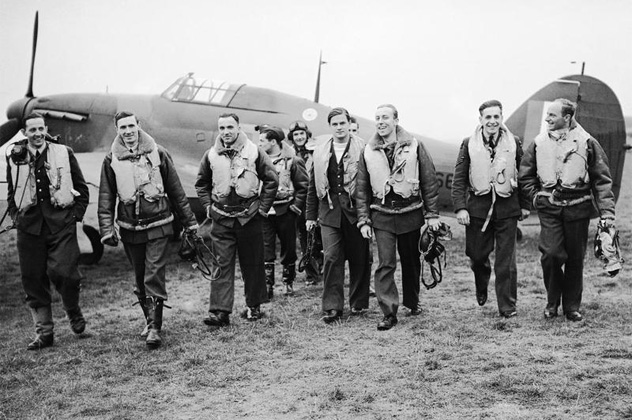
Poland during World War II is largely seen as a practice ground for the German war machine, and its pivotal contribution to the Allied victory in the war has mostly been forgotten due to the communist takeover of the country in the aftermath. Even during the occupation, Poland held out against an invasion by two of the biggest armies in the world for 35 days, putting up more resistance to the Nazi invasion than even France. After finally losing their territory to the Germans, the exiled Polish forces helped the Allies in a number of other theaters, too, so much so that a number of historians think that their contribution to the Axis defeat might even have been decisive.
One of the most vital roles played by Poland was by their Air Force in the Battle of Britain, and the highest kill ratio in the Royal Air Force during the war was in fact achieved by a Polish squadron. Squadron No. 303 destroyed three times the number of Axis warplanes than the RAF average, while suffering about a third of the losses of the other units. It was because of the RAF that the enemy could never send in their ground troops to England, and Churchill even praised their contribution with the famous quote, “Never was so much owed by so many to so few.”
Poland’s role might have been forgotten by the world, but that doesn’t change the fact that if it wasn’t for their exiled forces, the result of the war would have been much different than what it was.
5The Yugoslav Partisans Fiercely Resisted The Nazis
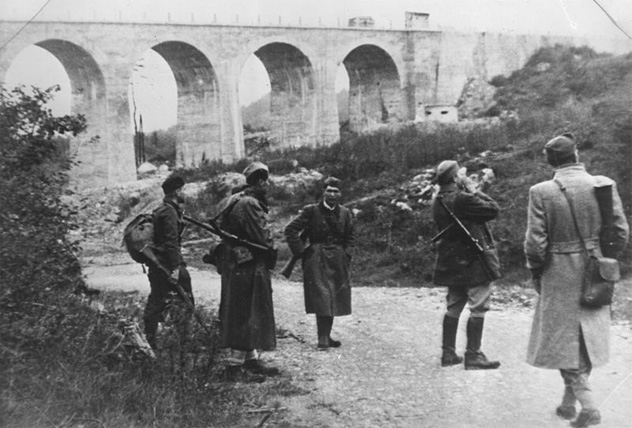
Yugoslavia was one of the poorest nations during the Second World War, as it had just been put together in the previous one and consisted of mostly peasants and locals. So when the Nazis invaded it in 1941, the Yugoslav army quickly fell to the Germans without much effort. Yugoslavia was also a sector which Germany wasn’t too worried about, as it only served as a strategic location for army bases for the imminent invasion of Russia. Unfortunately for them, one of the rebel movements from the country, also known as the Yugoslav Partisans, would go on to become the biggest and most successful resistance group against the Nazis in Europe.
The Partisans launched guerrilla campaigns at Nazi positions shortly after occupation, always avoiding confrontation, as that was what everybody did with an advancing German army in those days. They engaged a huge chunk of Hitler’s resources, too—it’s estimated that as many as 500,000 Axis soldiers were dedicated to the war in Yugoslavia. The Nazis attacked them on several fronts and the Partisans held out with their guerrillas.
The tables finally turned during the fifth Axis offensive against the movement. Less than 20,000 Partisan soldiers, surrounded in the mountains on all sides, fought against 120,000 Axis forces. Despite suffering heavy losses, the Partisans were able to repel the offensive and save their important leaders. They regrouped and launched a counter-offensive of their own against the Axis shortly after, which allowed them to retake a lot of their own country back from occupation.
4Ethiopia Has Resisted All Invaders
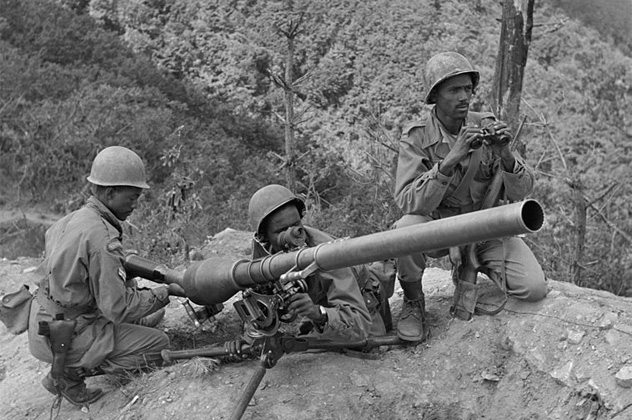
You might think of Ethiopia as some random country in Africa, but Ethiopian warriors have always been among the best in the world. That’s one of the reasons it is one of the few countries to have never been conquered by anybody in its 3,000-year history (except for a brief five-year period, when Italy occupied some parts of it).
Ethiopia also played a decisive role in the Korean War in 1951, when it sent the Kagnew Battalion, about 6,000 elite troops, to assist against the North. More than half of them fought in the war and had a crucial role to play in its outcome. Because Kagnew soldiers never surrendered and none of their bodies were ever found, the opposing side often thought of them as superheroes. Added proof of their prowess were their stats—out of about 3,000 soldiers deployed, more than 120 were killed and about 5,000 injured, and they won all of the 235 battles they were engaged in.
3Dacia Forced The Romans To Pay Taxes To Them
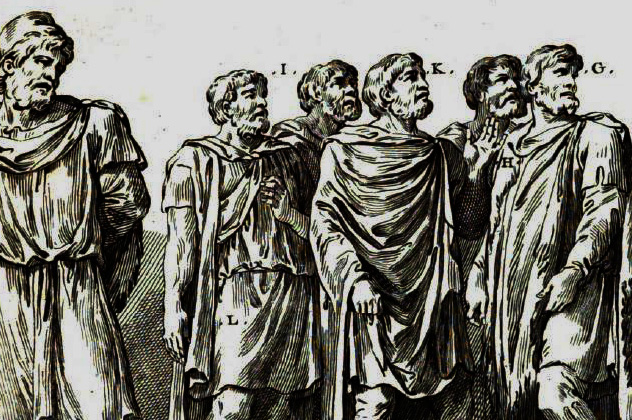
The Roman Empire remains one of the biggest and most influential empires in history, and their success on the battlefield could be directly attributed to their well-trained legions. In contrast, Dacia was a small hobo kingdom in the neighborhood, somewhere around what is now Romania. The Romans knew them simply as “barbarians.” So when the Dacians invaded the empire, the Romans dispatched an army under the Emperor himself to take care of the matter. What he was not expecting was stiff resistance from the Dacians, who were much more experienced with the woods than they were.
The Romans were not used to the conditions of the fighting, and other wars happening at the same time forced the Emperor to sue for peace. The Dacians accepted, and one of the peace terms was an annual fee paid by the Roman Empire as tribute to Decabulus, the Dacian king. The treaty lasted until A.D. 102, when both of them decided that it had been too long and started fighting again. Still, Dacia managed to carve its name in history as the strongest Roman enemy at the height of its expansion.
2Canadians Used Urine-Soaked Socks Against The Germans
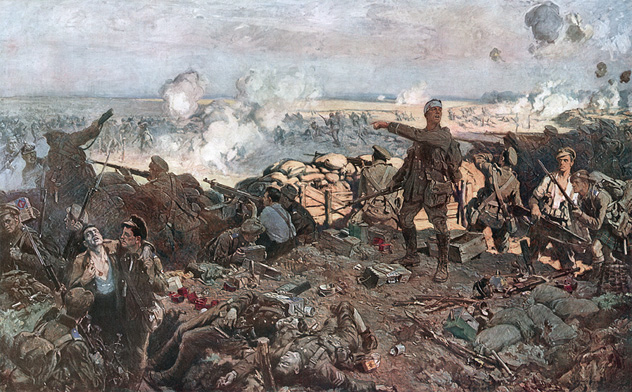
For a country which is known best for the number of polite apologies it produces every year, Canadian soldiers are surprisingly hardcore in times of war. A lot of Canadian troops fought with the Allies in World War I, most of them untrained. After getting some initial training in England, they ended up being posted near Ypres, the last city in Belgium not yet under Axis control. As they prepared for their first fight on the battlefield, they had no idea that it was also going to be the first-ever use of chlorine gas—or any chemical weapon for that matter—in modern warfare.
The French were the first to encounter the gas, and it created havoc among the trench lines. While most of the French troops fled their trenches or immediately died because of the gas or shooting, the Canadian division was the one to charge the Germans and contain their advance. When faced with the gas themselves, they soaked their socks in urine and tied them around their faces to act as makeshift gas masks, and even after suffering heavy losses, they didn’t give up their positions until help arrived. World War I was also when Canadians got recognition for their fighting abilities on the battlefield for the first time, and they have since performed elite roles in a lot of high-profile missions throughout the world.
1Switzerland Does Whatever They Want
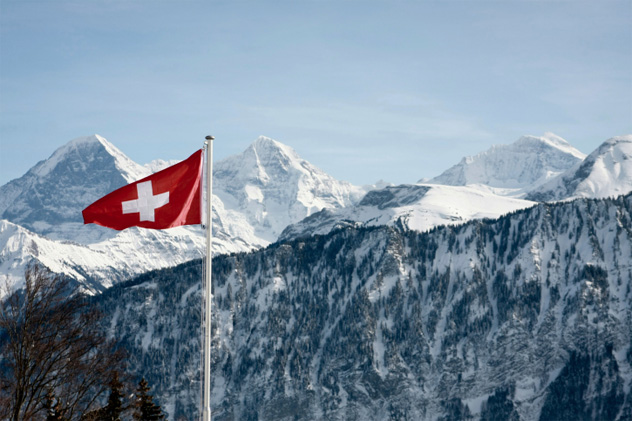
Switzerland has always been neutral in the tons of wars fought in its neighborhood, which is less because it’s a harmless, scenic country and more because the world has learned the hard way that you don’t mess with the Swiss.
In 1315, Switzerland was divided into various cantons which were ruled by the Hapsburgs in Austria, who would later go on to sit on the throne of the Holy Roman Empire and many other important kingdoms. The cantons soon formed a confederation and declared independence from the Hapsburgs, who were pretty much the Lannisters of Europe by that point. Understandably, they weren’t very pleased by the declaration, and Duke Leopold sent some 15,000 well-armored Imperial troops to settle it once and for all. On the other side of the battle were Swiss peasants who were heavily outnumbered but nonetheless prepared.
When the Imperial troops showed up, the Swiss promptly forced them into a narrow mountain pass, which was followed by an utter massacre. They rolled boulders and whatever else they could find downhill onto the Imperial army, after which Swiss units charged at them with clubs and pikes from ambush positions in the mountains. The heavy armor ended up being a disadvantage, and the Austrian army ended up losing about 2,000 of their skilled mounted knights. Leopold almost got killed in the battle, following which the army retreated straight back to Austria.
The Hapsburgs and the Holy Roman Empire launched more campaigns to recapture Switzerland, but could never do so, and in 1446 they gave the Swiss Confederation full independence and a right to self-governance.
Check out Himanshu’s stuff over at Cracked or just say hi to him on Twitter.

